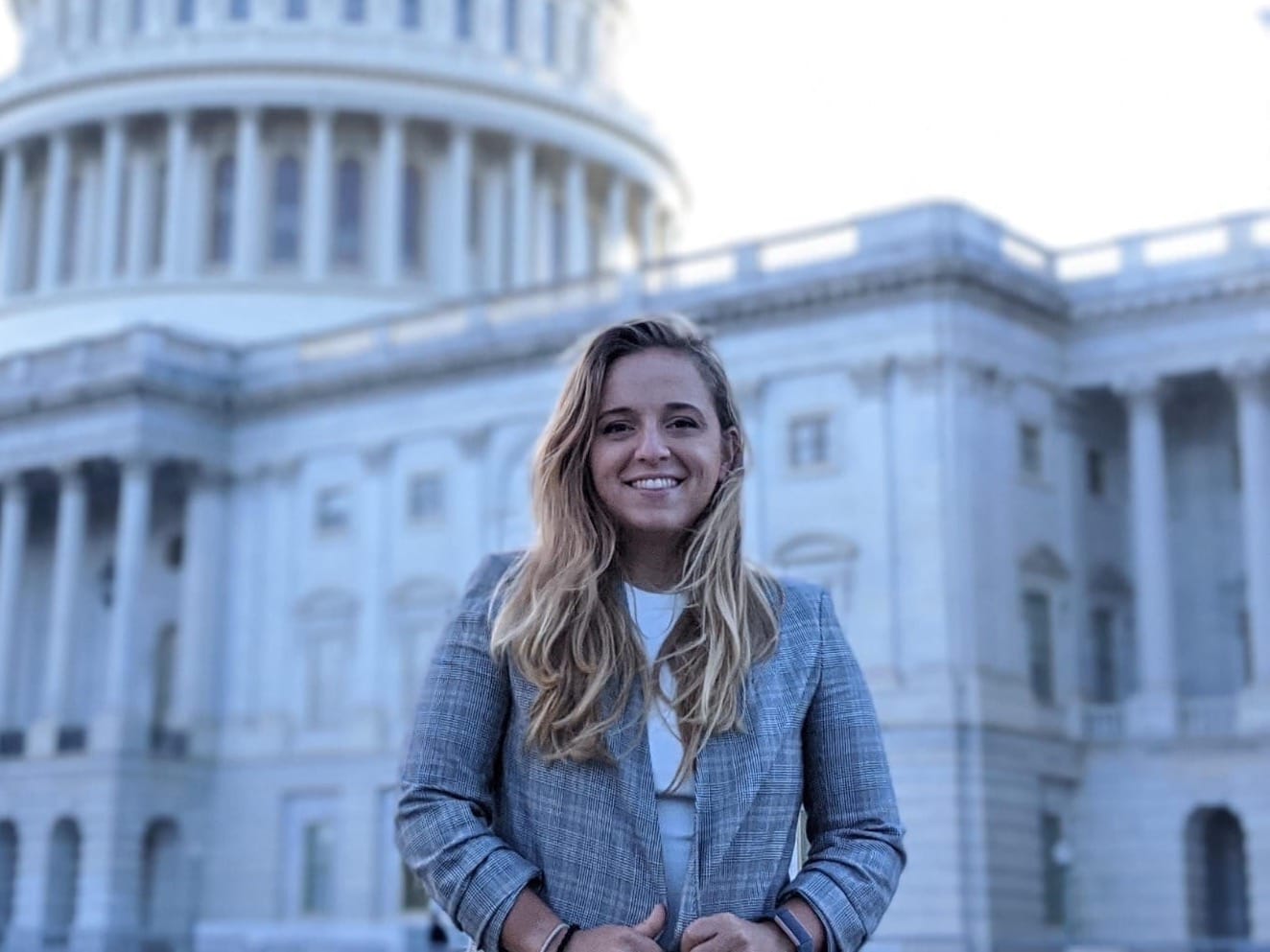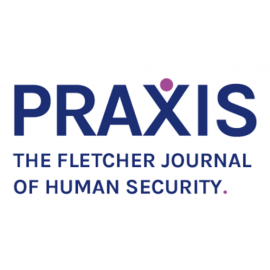Leir Migration Monitor: Mediterranean Corridors - Tracing the Footsteps of Organized Crime Groups (OCGs) in Migrant Smuggling

Article for the April, web edition of Praxis The Fletcher Journal of Human Security, By Aristedis Bouras
In his article for Praxis, Aristedis Bouras analyzes migrant movements on the Mediterranean Sea. After describing the dangers awaiting migrants during their journey across, Bouras writes: "As the Mediterranean continues to bear witness to one of the most significant movements of people in modern history, the stories of those who traverse its waters are a testament to both human desperation and resilience. The need for informed, compassionate, and effective policies has never been more critical."
Read more of Aristedis Bouras' article here:

Praxis The Fletcher Journal of Human Security, Web Edition - April 6, 2024
Backyard Bankers: Episode 3, Enduring Nepali Money Clubs

In the first episode of this series on money clubs, we saw how a Bangladeshi club helped members gather the funds needed to make sizeable investments in convenience stores in Boston. Next, we moved in the opposite direction to understand how Martine and Remy's money club gathered dozens of people from across the US to participate in their Côte Ivoirian insurance club. This time, we visit two organizers in New York City who are making a living on organizing money clubs. We also see how clubs can help newly settled Nepali migrants.
Parbati and Ashok, both hailing from the same region in Nepal, met in Queens, New York. Together, they opened a dhikuti money club and, with others, began generating large sums for business ventures as well as for infrastructure investment back home in Nepal. This story was written by Krishnan Subedi.
With its diaspora concentrated in Queens, Nepali immigrants in New York have levied the strength of dhikutis, introduced in the previous case, to realize their vision of the American Dream and improve lives back home. Respondents reported that their communities were concentrated in the neighborhoods of Elmhurst/Corona, Jackson Heights, and Sunnyside/Woodside. They typically join dhikutis to launch businesses to pay for their children’s medical expenses and education.
Unlike money clubs in other immigrant communities that complete a cycle within a few months or a year, dhikuti cycles run for two to four years or even longer so members can amass sufficient capital to achieve their long-term goals.
During the study, I visited immigrants at home, in shops and restaurants, and during religious activities, social functions, and festivals. I carried out 20 interviews of club members, six in-depth key informant interviews, and participated in a dhikuti meeting.
Club members meet monthly and most contribute $1,000 per month, plus another $10 to $20 for a dinner following the monthly meeting. Groups range in size from 30 to 90 members. Unlike many money clubs, these dhikuti are bidding clubs. Members who receive their payouts early pay an additional $2,000 to $8,000 during the cycle for the privilege of taking the first positions in the rotation. As in the other bidding clubs, those who receive payouts later receive substantially more than the sum of their contributions—an ‘interest payment’ in return for their patience.
When asked why being part of a dhikuti was necessary, all respondents gave similar answers: starting a small store or investing in a business, building a reserve for emergencies or to save for education and healthcare, sending money to relatives back home, or for religious obligations, such as weddings and funerals.
Trust is the most important criterion for selecting club members. Virtually all are from the same caste, religion, ethnic background, or region of Nepal. Some may have even come from the same village or family.
Although many Nepali immigrants who participate in dhikutis are established and own businesses, Nepali dhikutis in Queens are unique in how they incorporate new, often undocumented immigrants. The immigrant’s family or friends sponsor him or her and make the first two contributions on their behalf. This gives the new member time to find a job. They may work as a dishwasher at a Nepali eatery where they can earn perhaps $2,500 to $3,000 a month, working ten to twelve hours a day seven days a week. The new member receives their payout immediately, which is used to repay their families in Nepal for the costs of traveling to the US and to pay smugglers along the way. After the first two payouts in the cycle, the new member begins contributing to the dhikuti. They then pay in $1,000 a month and an additional $30 or $40 per month in extra payments until the cycle is completed.
Managing a dhikuti is complex. The organizer needs to track deposits, total savings, extra payments, and contributions to the social fund for each member. The monthly meetings serve as an opportunity to discuss when and where the club will meet, review the club’s bylaws, and resolve disputes, and fine late contributors. Given the responsibilities of their roles, organizers are paid for their work by the club.
Parbati and Ashok
When Parbati came to the United States eight years ago, she worked 12 to 14 hours a day contending with a meager $300 weekly salary and exploitative employers. She moved to New York City in 2012 and found a part-time job as a babysitter in Manhattan. From there she started to create a network of Nepali friends.
One evening, when she went to a restaurant for dinner, she saw many Nepali immigrants eating together for a dhikuti party. She asked to join the club but was rebuffed; new members cannot join mid-cycle, they said. With her friend Ashok (from the same region of Nepal) Parbati decided to start her own dhikuti. Ashok is well-educated, having completed undergraduate studies in business management. Parbati and Ashok recruited 22 members into their new dhikuti. In the beginning, they collected $300 per member, but unfortunately, one member took the payout and disappeared. Parbati and Ashok had to make up the difference. With this experience in mind, they adjusted the club’s rules: if a member wanted to invite a new member into the club, the applicant needed three guarantors willing to make good on their contributions, should they default.
In 2015, Parbati and Ashok opened another dhikuti with the three-guarantors rule. At the time of my interviews, the club included 40 members and the amount collected increased from $300 to $1,000 per month, generating a $40,000 monthly payout, reflecting their new rule that payouts should only be used for business purposes. Those late to club meetings were fined $5, while missing a meeting incurred a $20 fine.
In February 2016, Parbati and Ashok started yet another club that, as of this writing, includes 91 members. Ashok managed both clubs, receiving a $2,200 combined monthly salary for his efforts. His responsibilities were significant, as each month he oversaw $40,000 from the older club and $91,000 from the newer one. He mentioned that the newer one would run for another seven to eight years given the large membership. I asked Parbati and Ashok why their clubs were so successful. They said it boiled down to trust-building, training in financial literacy and enterprise, people’s knowledge and positive attitudes, savings behavior, evaluating how borrowers used their payouts, and collectively facing risks and challenges.
The impacts of these clubs extend to Nepal, too; Parbati and Ashok had recently sent $20,000 to their village in Nepal to buy an ambulance. At the same time, they were planning to help build their district’s school and roads. As we will see in the next case, some savings clubs operate within the structures of broader community organizations, which often use club dues or donations to fund similar aid and development projects back home.
These cases are excerpted from a forthcoming book called Backyard Bankers: Immigrants, Money Clubs, and The American Dream, written by Leir-affiliated faculty Kim Wilson and her co-author, Jeffrey Ashe, a Fellow at Columbia University.
Spotlight: Sarah Morehouse, F22

Sarah Rose Morehouse is a dedicated professional with extensive experience in international development, conflict resolution, and program management. She holds a Master of Arts in Law and Diplomacy from The Fletcher School at Tufts University, where she specialized in Human Security, Migration, and Gender/Intersectional Analysis. Her career spans various roles in organizations dedicated to humanitarian assistance, refugee resettlement, and conflict resolution. Sarah spent over two years with the Free Burma Rangers (FBR) in Myanmar, overseeing multi-ethnic relief teams providing aid to civilians displaced by armed conflict. She designed and delivered training on civilian protection, child protection, and conflict monitoring.
Since her time at Tufts, Sarah took on roles including livelihoods consultant with Jesuit Refugee Service and continued as Program Manager with the Refugees in Towns Project. In the latter capacity, she led a nationwide study on refugees' understanding of U.S. race relations and supervised the development and publication of RIT Case studies.
Current Role: Director of Programs at Midtown Utica
I am working on: As the Director of Programs at a post-resettlement agency, I exercise comprehensive oversight of program design, implementation, and monitoring. I focus on navigating the complexities of state and federal grants while prioritizing localization initiatives to support integration efforts.
An insight I've discovered: In the post-resettlement refugee community, insufficient support has led to a rise in return migration. Amidst growing incidents of street violence affecting these communities, some families feel safer returning to the places they originally fled.
I am passionate about: My passion lies in advocating for the protection of refugee and migrant youth. I am dedicated to bolstering protective factors and reducing risk factors to ensure their well-being and successful integration.

